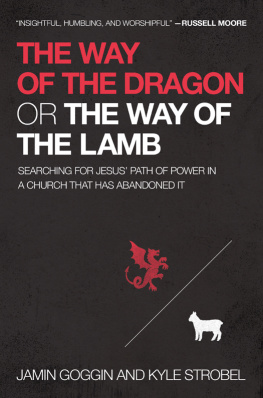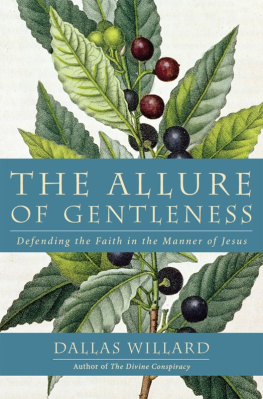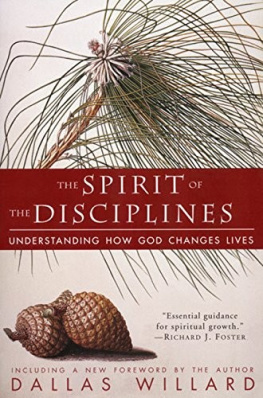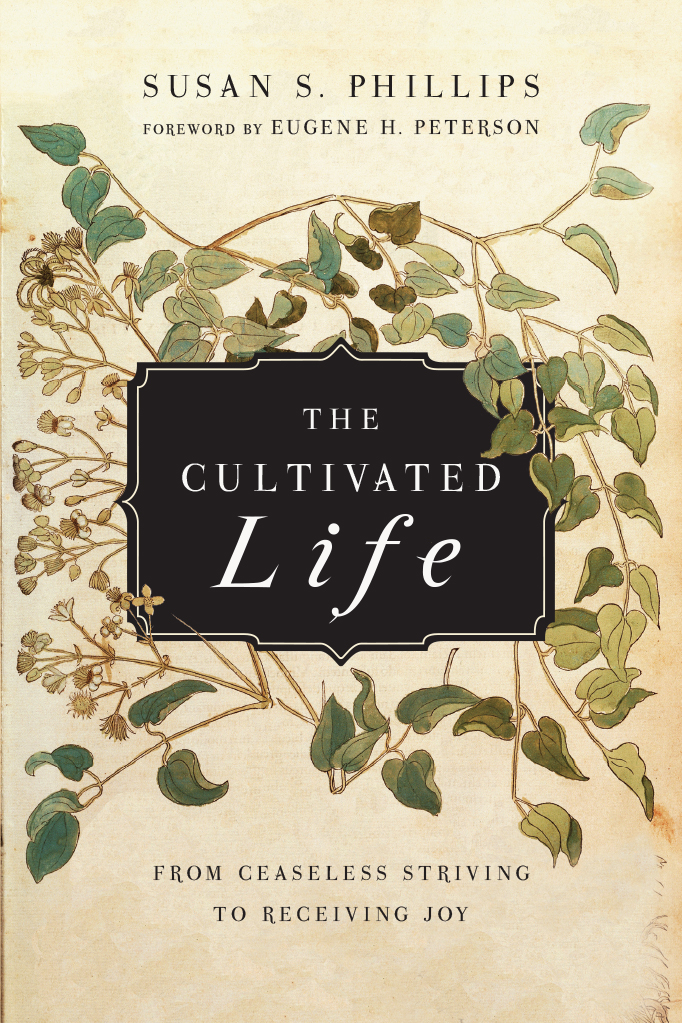Introduction
Leaving the Circus
Where is the Life we have lost in living?
T. S. Eliot, choruses from The Rock
I n giant billboard lettering, a California medical organization implores freeway drivers, Thrive. A bumper sticker taunts, Jesus is coming. Look busy. Other cars recommend pacifism, a vegan diet and yoga. Even on a morning commute we are prompted to ask, Where is the Life we have lost in living, and how can we get to it? As the word thrive increases in popularity, we want to know how to help our stifled souls grow.
As I listen to people in Christian spirituality classes and in spiritual direction, I hear questions asking how: How can we fashion flourishing lives from our time-compressed, multi-tasking days? How can we follow Jesus, the Way and the Life, and receive Gods joy? How can we participate in the cultivation of our souls in a ceaselessly striving, circus-like culture that pushes us to be performers and spectators? As I move from one meeting to the next, juggling priorities and balancing demands, I, too, wonder how its possible to orient myself toward God when I am so engaged by the three rings of my calendared life.
Scripture, practices of faithful living and spiritual insights from people around the world and through time offer a treasury of wisdom about the cultivated life, which informs this book. As you read about a spirituality of cultivation, may you sense the pulse of Life in your own life and be refreshed by Gods grace, as I have been in writing it.
Seeking Life
Many of us, sounding like T. S. Eliot, ask what has happened to Lifewith all its capitalized significance. Recently when speaking at a church retreat, I listened at a coffee break to a middle-aged retreatant who gave voice to the difficulty of finding Life in living. Matt (not his real name, and I quote from memory) said, Ive been a Christian for decades. I try to live the right way, but Im not sure Ive made much progress on the way forward, you know, the way of growth, even flourishing. He shook his head slowly and looked at the floor, not meeting my eyes while continuing to speak.
I feel, spiritually, the same way I did when I became a Christian as a teenager. I havent grown, but Im older, he said, wincing. Id like to end well, if you know what I mean. Im not sure what way of living would make a change, a change to the rut Im in spiritually. Its not easy to alter my ways.
We stood in a hallway while around us people chatted and snacked. Matt told me how years have flown by: Hes built a career, raised a family, and every day juggles balls tossed his way. He has done well and been satisfied with work and family life. My impression was that his days are long and the years far too short.
Matt looked at me tearfully and said, I want to become more the way God would have me be. Then, immediately turning to the how questions, he asked if I could think of any spiritual practices that might help him grow.
Matt yearns for what I call the cultivated life. He wants to find the Life hes lost in living, and he trusts that Life also seeks him. God cares and has a way for him to be. But in the midst of a good and full life, something important has gone missing. Perhaps its Matt who has gone missing somehow while going about his ways and losing track of Gods way for him. His longing to grow and flourish was palpable as he spoke of a way of living with God even in the midst of his ways in the world. His willingness to take up the necessary work was evident in his question about spiritual practices. Desire and discipline go hand in hand in soul cultivation, and Matt wants to participate in his becoming.
The longing for a meaningful life also throbs in the hearts of people whose lives are remote from Matts in many ways, for questions about the cultivated life span generations and cultures. The investigative journalist Katherine Boo listened to teenaged waste-scavengers in a Mumbai slum and reported a conversation between two boys: Do you ever think when you look at someone, when you listen to someone, does that person really have a life? Remembering lives that ended tragically, the boy concluded, Even the person who lives like a dog still has a kind of life.
Even in slums people ask the how questions about making a life. Another teenager Boo got to know imagines that the substance of a life is like the mixture of two parts hydrogen and one part oxygen, and it can be experienced differently depending on whether its in a liquid or solid state. He is sure that there are things a boy can do to make the water of his life like iceto make his life worthy and significant for him as well as for people affected by his life. He trusts that there are ways to find Life in living.
Asking questions like Matts yet with a life so different from Matts, this boy too may choose to live a cultivated life, a way that allows for soul flourishing. This is a statement of faith. Boo shows that even in the most impoverished conditions, boys cherish their lives. In fact, a boy hopes that life can be cultivated and decides to participate in his becoming by directing his desire into discipline. However, the circumstances of that boys life are crushing, and by the books end he thinks it may not be possible to resist the melting forces of his circumstances. Its remarkable that hes been ice-strong for as long as he has.
Words and Ways
As a spiritual director, I tune in to words people use when talking about spiritual matters, for many words function as lenses through which we can see more deeply into the human soul. In particular, metaphors and verbal images bridge the gap between the conscious and unconscious in us, serving as vehicles of personal and cultural insight. The boy in the Indian slum hopes to forge a solid, icelike character. In an American suburb, Matt thinks hes in a rut. Both ice and rut are verbal images of things that are real and concreteH2O in its solid state and a deep groove in the groundand illuminate abstract, intangible aspects of life.










